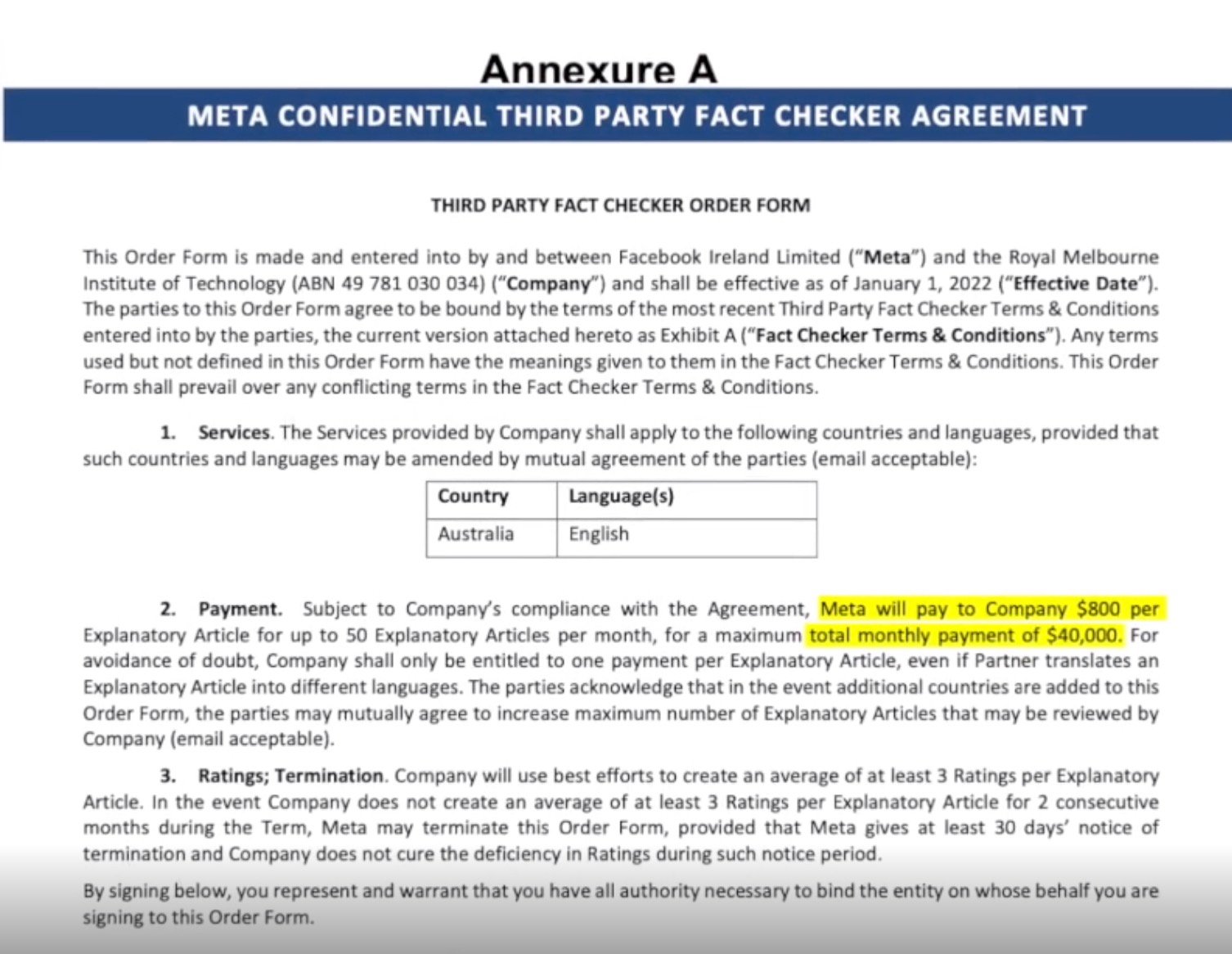New information from a lawsuit filed by Australia-based reporter Avi Yemini revealed that Facebook (Meta) pays its notorious “fact checkers” $800 per check, supposedly in an effort to combat “misinformation”.
The finding suggests that those who doubt that “fact-checking” is a user-hostile industry, which profits from internet censorship could be persuaded to reconsider their position.
Indeed, the lawsuit revealed lucrative sums of money exchanging hands between Facebook and so-called fact-checkers, whose supposed purpose is to weed out “misinformation” through an “independent” process.
These efforts, however, tend to end up as plain censorship of “disfavoured” opinions on political, social and medical issues. While Yemini eventually withdrew the lawsuit due to being unable or unwilling to afford the legal fees, the ongoing process revealed interesting findings nonetheless. This included the true nature of “fact-checkers” touted as being financially independent from BigTech.
According to the court documents, the figure reached half a million dollars per year, and that involved just one “fact checking” operation, RMIT University FactLab, based in Australia.
The agreement surfaced in in Yemini’s defamation lawsuit naming RMIT FactLab as the plaintiff. Yemini claimed that this group subjected one of his reports to a false “fact-check”. Whether true or false, RMIT lab was given $800 Australian dollars for each “check” – 40,000 per month. The contract stipulated that RMIT would run up 50 articles through its “fact-checking machine” every month.

The discovery sheds light on the ominous nature of these arrangements; specifically, that so-called “independent fact-checkers” are involved in lucrative commercial deals with social media giants, which incentivise online censorship on their platforms (in this case Facebook).
At the same time, these huge platforms, whose reach and influence is subject to algorithmic changes and updates, have the inherent capabilities to sway public opinion by promoting one-sided information, while effectively deleting opposing views.
RMIT University, which is behind RMIT FactLab, insists that the group is in fact independent and that the money comes from “philanthropic donations and independent research grants.”
Join the telegram channel for updates, charts, ideas and deals.
Did you like the article? Share it!


